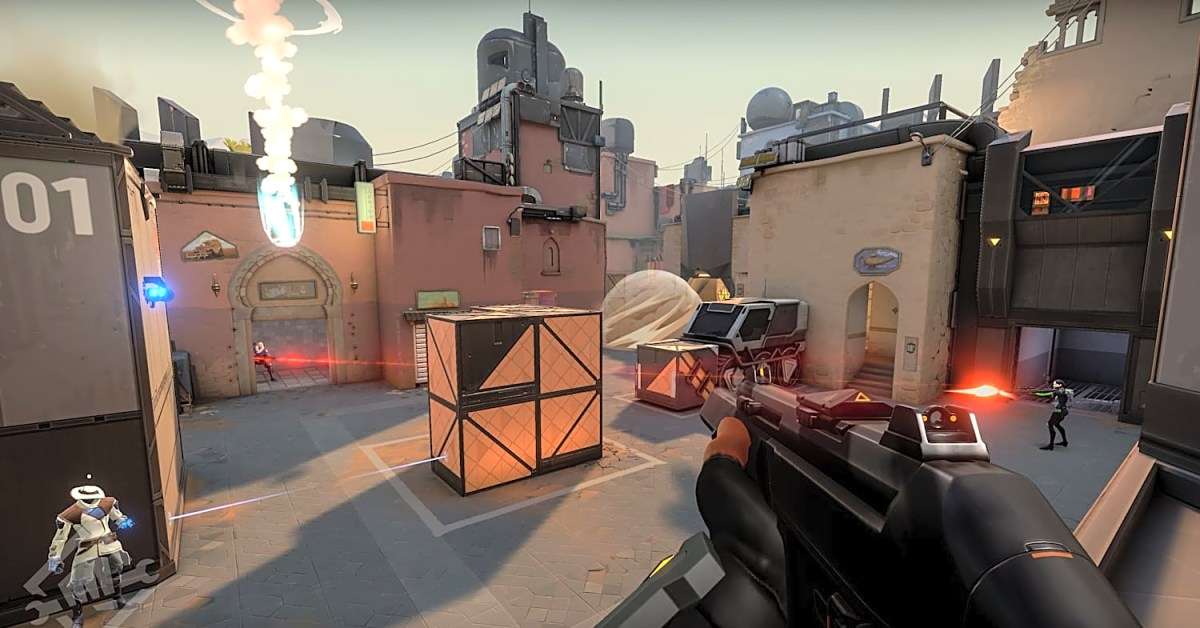When it comes to FPS games, having a strong and coordinated team can make all the difference between winning and losing. And while individual skill and strategy are important, the power of team roles and responsibilities cannot be overlooked. In this article, we will explore the importance of team roles and responsibilities in FPS games, and how they contribute to overall success in competitive gaming. Whether you’re a seasoned player or just starting out, understanding these concepts can greatly improve your gameplay and communication with your teammates. So let’s dive in and discover the secrets to dominating in FPS games through effective teamwork.
In the fast-paced world of first person shooter (FPS) games, having a solid understanding of team roles and responsibilities is crucial for success. Whether you’re looking to improve your individual skills or dominate in competitive multiplayer matches, knowing how to effectively communicate and work with your team is essential. In this article, we’ll dive into the importance of team roles and responsibilities in FPS games and provide tips for maximizing your gameplay.
To begin, let’s define what we mean by ‘team roles’ and ‘responsibilities’ in the context of FPS games. Team roles refer to the specific functions or positions that players take on within a team. These can range from support roles, like healers or defenders, to offensive roles, like damage dealers or snipers. Responsibilities, on the other hand, refer to the tasks or objectives that each player is responsible for within their role. For example, a support player may be responsible for healing their team while an offensive player may be responsible for taking out enemy players.
Understanding and effectively utilizing team roles is crucial for success in FPS games. Each role has its own unique strengths and weaknesses, and it’s important for players to understand how to best utilize their role in order to contribute to the team’s overall strategy. For instance, support players may not deal as much damage as offensive players, but their ability to heal and protect their teammates can greatly impact the outcome of a match.
In addition to individual roles, it’s also important for players to understand their overall responsibilities within a team. This includes things like communication, teamwork, and game objectives. Communication is key in FPS games, as it allows players to coordinate their actions and make strategic decisions. Teamwork is also crucial, as it allows players to work together towards a common goal. And of course, understanding and fulfilling game objectives is essential for achieving victory.
In competitive FPS games, having a well-rounded team with players who understand and excel in their roles and responsibilities is crucial. This not only allows for a more cohesive gameplay experience, but it also gives teams a better chance at winning matches. So whether you’re new to FPS games or a seasoned veteran, make sure to brush up on your understanding of team roles and responsibilities to improve your gameplay and dominate in the competitive scene.
The Importance of Communication and Teamwork
In any FPS game, communication and teamwork are key to victory. Without proper communication, it’s nearly impossible to coordinate attacks or defend against enemy advances. Additionally, understanding and fulfilling your role’s responsibilities is crucial for maintaining team synergy and achieving success.
Understanding the Different Team Roles in FPS Games
In the fast-paced world of first person shooter (FPS) games, teamwork is crucial for success. In order to work effectively together, players must understand and fulfill different roles within the team. Let’s take a closer look at some of the most common roles you’ll encounter in these games.
Tips for Maximizing Your Gameplay with Team Roles and Responsibilities
use HTML structure with team roles and responsibilities only for main keywords and
In order to maximize your gameplay in FPS games, it’s important to have a strong understanding of team roles and responsibilities. One tip for optimizing your gameplay is to establish clear communication with your team. This can involve using in-game voice chat, creating a strategy before the game starts, and constantly updating your team on enemy movements and objectives.
Another important tip is to know your role within the team and stick to it. This means understanding your strengths and weaknesses and working with your team to fill in any gaps. For example, if you excel at sniping, focus on taking out enemies from a distance while your teammates cover you. Additionally, knowing the roles of your teammates can help you make better decisions in the heat of the game.
Lastly, always be open to feedback and adapt your gameplay accordingly. This can involve adjusting your strategy mid-game if it’s not working, or taking on a different role if needed. Remember, teamwork is key in FPS games and being able to adapt and work together as a team will greatly improve your chances of success.
In conclusion, the importance of team roles and responsibilities cannot be overstated in FPS games. By understanding your role and fulfilling your responsibilities, communicating effectively with your team, and utilizing tips and strategies for success, you’ll be well on your way to becoming a top player in competitive gaming. So next time you load up your favorite FPS game, remember the power of teamwork and make sure to play your part!


